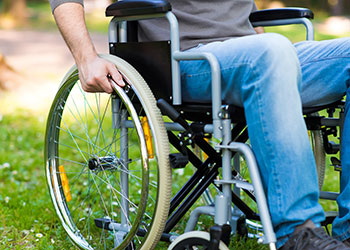
A spinal cord injury or SCI, occurs when trauma, (such as a fall or vehicle accident) or disease (such as a tumor or spina bifada) damages the spinal cord, resulting in partial or complete paralysis. It is estimated that 86,000 Canadians are currently living with SCI, with over 4,000 new cases every year.
“Health care services for people who sustain a SCI are highly specialized and complex,” says Marcel Dvorak of the Blusson Spinal Cord Centre and Professor of Orthopedics at the University of British Columbia. “We would like to test the theory that patients will have better outcomes and will be more cost-effective, if care is provided in a timely manner and in a specialized SCI centre.”
Data access has recently been approved for a research project, led by Professor Dvorak, to describe the continuum of health care delivery, from the time of injury, initial acute and rehabilitation care to long-term outcome in the community, for persons with SCI in Canada.
The ACT project is a collaborative effort between the Rick Hansen Institute in Vancouver, the University of British Columbia, and the acute and rehabilitative sites of the Rick Hansen Spinal Cord Injury Registry (RHSCIR Network Sites) across Canada, including the local Vancouver RHSCIR sites, Vancouver General Hospital and GF Strong.
At the heart of the project is the development of a two-part computer model, known as the ACT model. “Firstly, the model will simulate the provision of pre-hospital, acute and rehabilitation medical services for individuals with traumatic SCI and secondly, it will be able to estimate long- term patient outcomes and costs,” explains Professor Dvorak. “The ACT model will be used to test how the ‘timing’ (when treatment is provided) and the ‘setting’ (where patients are treated) of SCI care affects patient outcomes and health care costs.”
Findings from the ACT project will provide policy makers, health care administrators and practitioners with the evidence necessary to recommend changes to optimize how care is delivered for persons with traumatic SCI across Canada.
For the project, PopData will link data from the BC Ministry of Health, the BC Vital Statistics Agency and WorkSafeBC with BC Trauma Registry data and researcher-collected data from the Vancouver Spine Database.